
A Biography of Rumer Godden
Rumer Godden was the prolific author of over sixty works of fiction and nonfiction for both adults and children, including international bestsellers Black Narcissus and In This House of Brede.
Margaret Rumer Godden, also known as Peggy, was born on December 10, 1907, in Sussex, England. Six months after her birth, her family moved to India, where her father worked for the Brahmaputra Steam Navigation Company. Godden spent most of her childhood in a large house along the river in Narayanganj, a trading town in Bengal with her sisters Rose, Nancy, and Winsome, also known as Jon. She fell in love with India, and went on to use it as a colorful backdrop for many of her successful novels, including The Peacock Spring and The River. In 1966, she and her sister Jon, cowrote a memoir about their childhood, Two Under the Indian Sun.
In 1920, at the age of thirteen, her parents sent her and Jon to boarding school in England. The girls struggled to leave their home in India behind, changing schools five times in two years. Godden eventually parted ways with Jon and attended school in Eastbourne, England, where she studied literature and dance. Due to a chronic spinal injury, she could not pursue a career as a professional ballerina and instead trained in London as a dance teacher. When she was eighteen, she opened a dance studio in Calcutta, the Peggie Godden School of Dance, and there she taught both Indian and Eurasian students, a practice that was considered controversial at the time. At twenty-seven, she married Laurence Sinclair Foster, with whom she had two daughters, Jane and Paula. Upon the birth of her children, she briefly returned to Britain, where she published Black Narcissus, a commercial and critical success.
At the start of World War II, Godden took her daughters to Kashmir and parted from her husband, who left her with many debts. She rented a small house by the Dal Lake with no electricity or running water, wrote endlessly, and cultivated an herb farm. At this home, one of her servant’s tried to poison her and her children by putting ground glass, opium, and marijuana in their food, inspiring a scene in her book Kingfishers Catch Fire. At forty, she returned to England again, and truly emerged on the British and American literary scenes. She remarried and lived in England for the rest of her life with the exception of a few visits to India. Godden felt at home in both Britain and India, and wrote, “When I am in one country I am homesick for the other.”
Godden studied many religions of the world and she struck up a friendship with a scholarly Benedictine nun, Dame Felicitas Corrigan. Her studies inspired one of her best-known novels, In This House of Brede, a story about an Englishwoman who leaves her life in London behind to join an order of Benedictine nuns. Godden lived near Stanbrook Abbey for three years, researching the book. She officially converted to Catholicism in the early 1960s.
Many of her books were made into classic films, including Black Narcissus, The River, The Greengage Summer, and The Battle of the Villa Fiorita. She collaborated with filmmaker Jean Renoir on The River, and they traveled to Calcutta while working on the movie. In addition to her novels written for adult audiences, she also wrote several children’s books—the most famous being The Doll’s House—and nonfiction books, including a biography of Hans Christian Andersen. In 1972, she won the Whitbread Award for children’s literature, and in 1993 she was named an Officer of the Most Excellent Order of the British Empire. At the age of eighty-six, she visited India—for the final time—with her daughter to shoot a BBC documentary.
She published her last book, Cromartie vs. the God Shiva, in 1997, just a year before she passed away.

The Godden family house at Narayanganj in Bengal in the early 1900s.
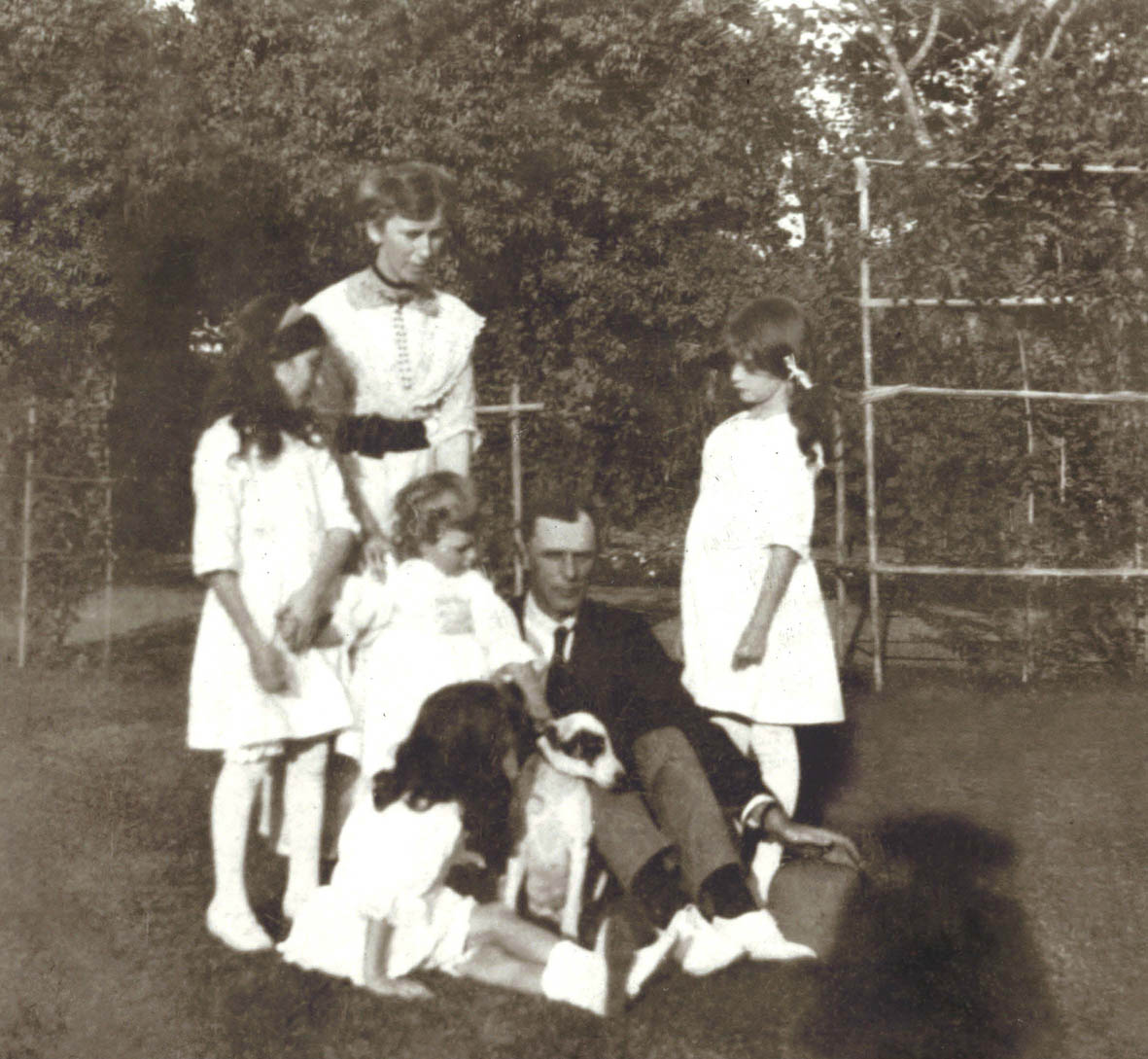
Godden in Bengal in 1915 with her parents, Norah and Arthur; her sisters, Rose, Nancy, and Jon; and their dogs, Cherub and Chinky.
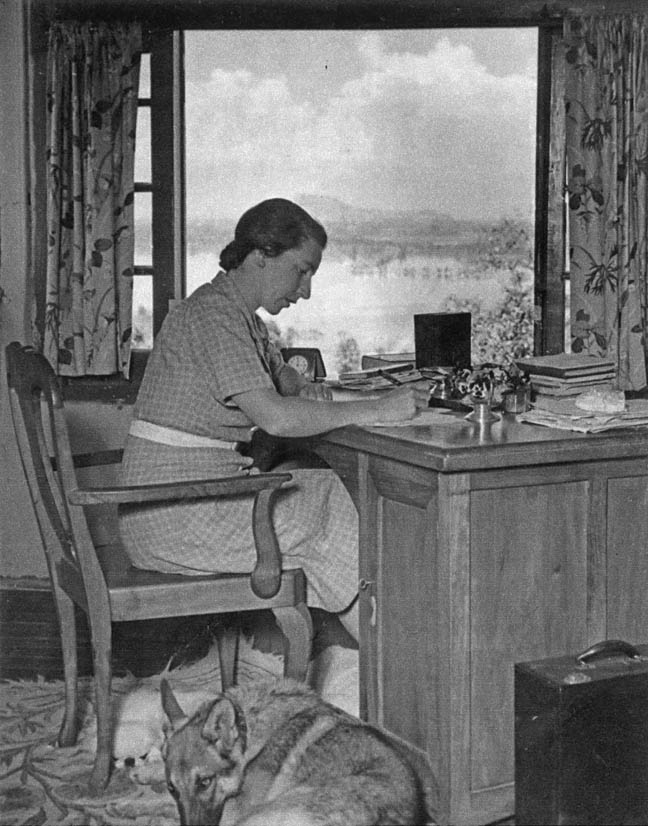
Godden at her desk in Dove House in Dal Lake, Kashmir, 1943.
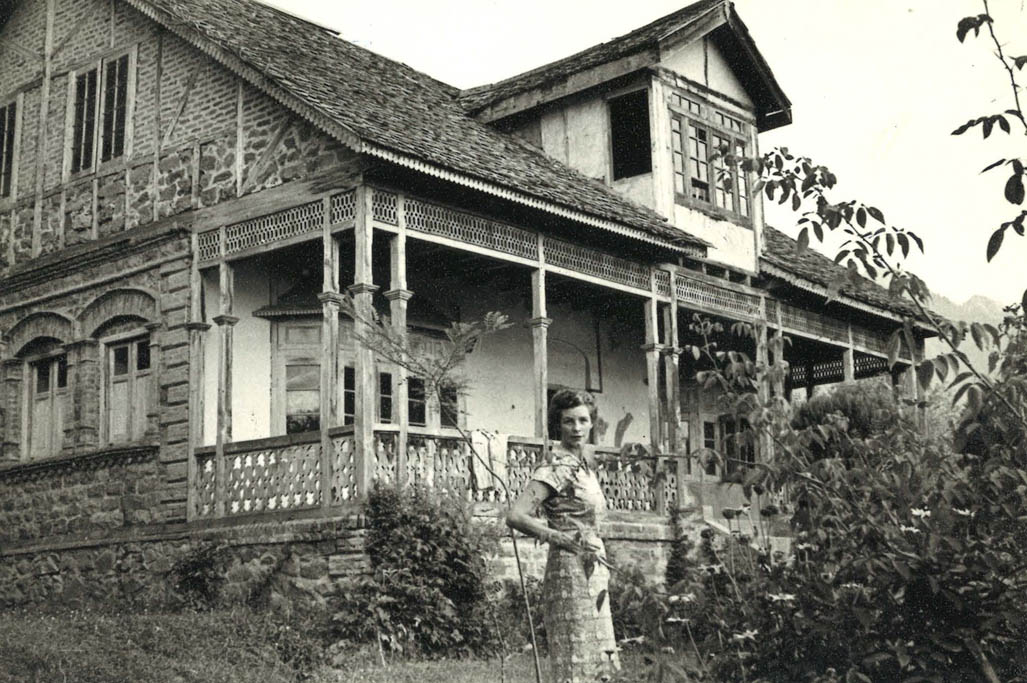
Godden in her garden at Dove House in the 1940s.

Godden on the set of Black Narcissus at Pinewood Studios with Michael Powell, Emeric Pressburger, and Deborah Kerr.

Godden in Buckinghamshire in the 1950s.

Godden with her daughter Jane in the woods in Buckinghamshire in the 1950s.

Godden at a book launch in New York with Jean Primrose in the 1960s.

Godden with her grandchildren Mark and Elizabeth in Rye, 1962.

Godden’s home, Lamb House, in Rye.
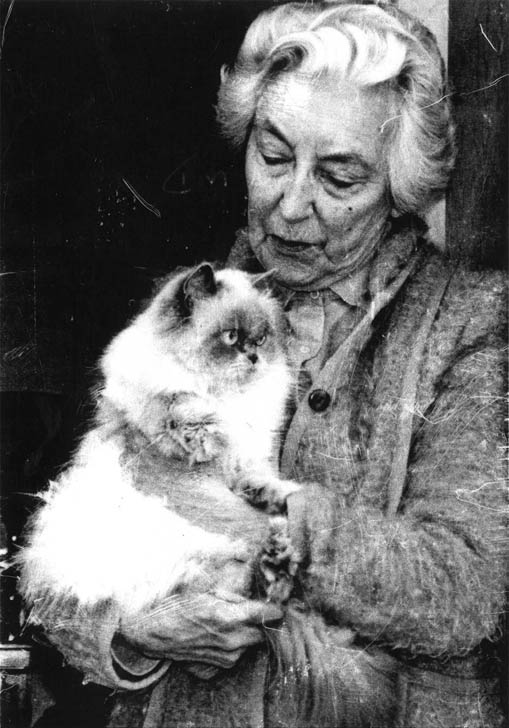
Godden and her cat, Simkin, in Scotland in the 1990s.
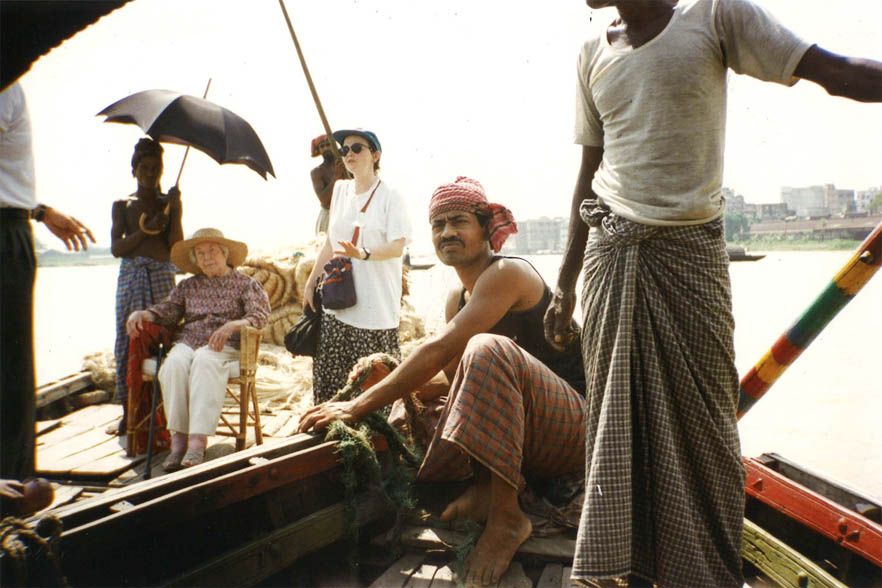
Godden in India in 1995 while filming BBC’s Bookmark.
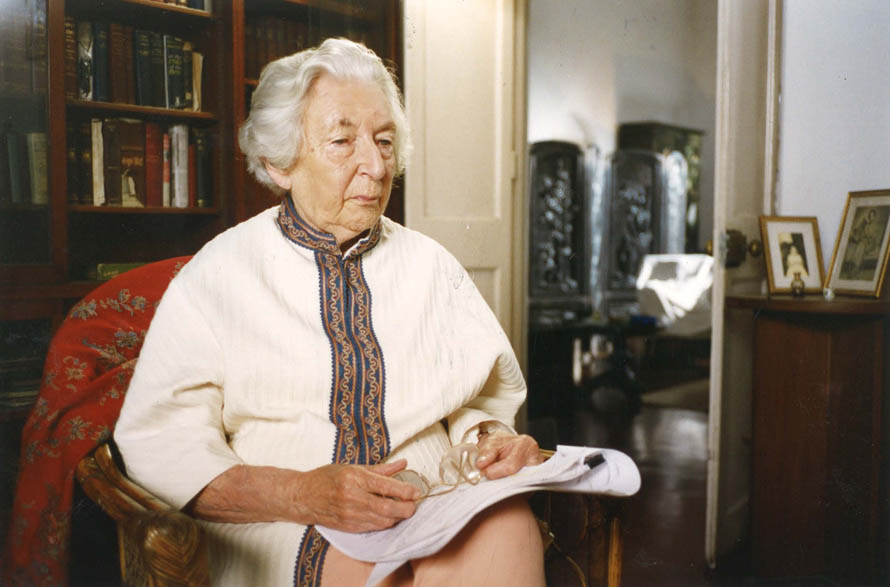
Godden while filming Bookmark in 1995.
(All photographs courtesy of the Rumer Godden Literary Trust.)